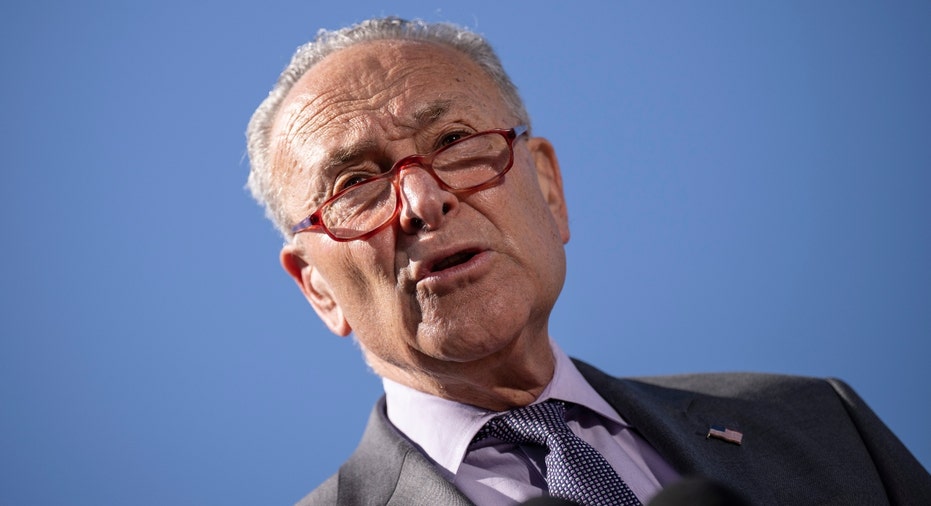Senate passes bill to prevent rail strike, which could have wreaked havoc on economy before holidays
Rail strike would have cost US economy billions of dollars per day
How Congress can 'solve' the rail problem
Brotherhood of Railroad Signalmen President Michael Baldwin discusses Congress' involvement to avoid a rail strike, arguing a strike is the 'last thing' the industry wants.
The Senate on Thursday passed a bill to avoid a railroad strike, while rejecting separate measures to give rail workers extra sick leave days and to extend a cooling-off period between management and labor for 60 days.
The bill to avoid the strike passed 80 to 15 with bipartisan support and avoids a catastrophic blow to the U.S. economy ahead of the holidays. Sen. Rand Paul, R-Ky., voted "present." It will now head to President Biden for his final signature.
"I am very glad that the two sides got together to avoid a shutdown which would have been devastating for the American people, for the American economy, and so many workers across the country." Senate Majority Leader Chuck Schumer, D-N.Y., said ahead of the votes.
Schumer announced the votes Thursday afternoon after negotiations between Republicans and Democrats on how to handle two bills the House passed Wednesday on preventing the strike and giving workers seven extra sick days.
RAIL UNION STRIKE WOULD CREATE A ‘CRIPPLING' ECONOMY, INDUSTRY OFFICIAL WARNS

The final agreement the Senate passed was already approved by eight transportation unions earlier this year. (Mario Tama/Getty Images / Getty Images)
The final agreement the Senate passed was already approved by eight transportation unions earlier this year. It would grant workers three unpaid sick days as long as the employers were provided with at least 30 days' notice before the time was taken.
Four transportation unions, compromising nearly 100,000 rail workers, say the deal is unfair and threatened a national strike unless the agreement is broadened. They are asking for seven additional days of paid sick leave — a demand the House moved to grant Wednesday.
Sen. John Thune, R-S.D., predicted Thursday the Senate will vote on a bill to avert a rail strike. | AP Newsroom
Schumer set all three votes Thursday afternoon at a 60-vote threshold.
That high bar to clear made it significantly more difficult for the chamber to pass the seven days of sick leave measure, which had limited support among Republicans — to the frustration of Sen. Josh Hawley, R-Mo., who backed it. Five total Senate Republicans voted for it, compared to just three GOP members in the House.
"I'm going to vote yes on the sick leave, because that's what the workers actually want, and I'm going to vote no on the underlying bill because I don't support it, and the workers don't support it," Hawley said. "My thought is this — if we want to be a party for working class people, then we'd want to do something for working class people."
The cooling-off period had little Democratic support, which made it harder to pass at 60 votes than if the vote were held at a 50-vote threshold.
CLICK HERE TO GET THE FOX BUSINESS APP
"I think most of our members would support that. The question is will any Democrats?" Senate Minority Whip John Thune, R-S.D., said Thursday of the cooling-off period, which was introduced by Sen. Dan Sullivan, R-Alaska. That vote failed 26-69.
But on the underlying bill to avoid the shutdown, even Democrats demanding better treatment for rail workers were reluctant say they would vote against it — even without the additional sick leave.
"I think there is a lot of commitment to solving this problem before it has a potentially disastrous economic effect," Sen. Richard Blumenthal, D-Conn., said.
Fox News' Kelly Laco contributed to this report.























